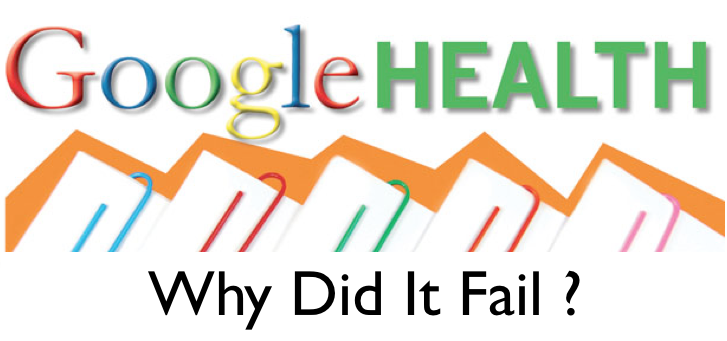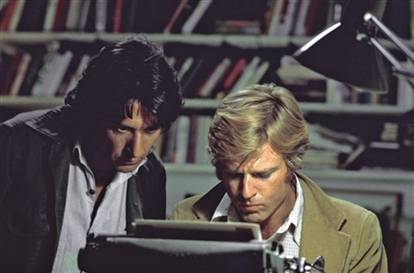What Does Google Health's Failure Have To Do With Watergate ?
/
I like good movies for a lot of reasons but often for the memorable quotes you get from time to time. I enjoy sharing a line from an iconic film at a cocktail party when referencing the latest topic Du jour. In All The President's Men, Deep Throat, the government informant who spoke in riddles and metaphors in response to Woodward and Bernstein's questions recounted, "follow the money". Following the money is often good advice and is one of those quotes that I love to use. It explains a lot of things.

So what does Google's recent announcement that it is discontinuing Google Health have to do with Watergate ? Just "Follow The Money".
I a March 2011 post "Where Is Google Health In The Evolution Of Wellness ?" I talked about the promise of technology in evolving health care and fitness into wellness. Interestingly I received a number of communications following the post from people who seemed to know Google Health was being shuttered. But why would this promising idea get the shaft ? In a recent Technology Review article , How A Broken Medical System Killed Google Health , correspondent David Talbot wrote:
At the end of this year, Google Health will flat line. The service couldn't encourage many people to import or analyze their health data, and experts say its untimely death is, in many ways, an extension of U.S. health-care providers' failure to share data across institutions, or make it easy for patients to obtain it.
David's tag line to the article said it best, "Google would have had to fix a balkanized U.S. health-care system to make the service catch on." He's right and I know it first hand.
I recall my treatment for colon cancer and repeated and unsuccessful attempts to get my group of five physicians to utilize Google Health. Despite Quest Diagnostics providing access to my diagnostic records electronically for free on Google Health, not one my physicians knew about it or cared to use it. Instead I would have to suffer duplicate tests, hauling records around and harassing people to fax results. Even more interesting was a strategic session with leaders in the Medical Fitness field. Not one of the participants knew what Google Health was. Amazing but why ? Why would a system that offered real solutions to a broken system be so unfamiliar to so many ? Follow the Money.
The failing of and lack of awareness of solutions like Google Health in either the "Sick Care" system or the "Wellness" prevention system highlights the obvious: there is NO money in improving health outcomes. As Bryce William's recent article in Fast Company "There Is No Such Thing As A Health Care Consumer" points out about the failure of Google Health:
...the underlying cause is that there is no such thing as a consumer in the American health care system today. A consumer is someone who uses personal dollars to buy goods and services for his or her own use. In our health care system, the users of medical services are, of course, individuals. But users don’t pay the largest share of costs for these services. Employers, the government, and health insurance companies do. So while people may be highly concerned about quality medical care, most are not motivated to manage costs. With that fundamental understanding, it’s easy to see why Google Health failed.
And that is the problem, its up to consumers, who have no real incentive to improve their health, and its up to delivery systems that have no incentive to deliver it. So when I ask What does Google Health's Failure Have To Do With Watergate, you might just "follow the money".
So tell me, Bryan O'Rourke, why do you think Google Health failed ? Why has the U.S. and world's populations become less healthy while the cost of care sky-rockets amid a push for healthier lifestyles by the fitness industry. Is it a broken system ?











